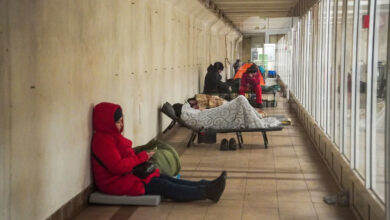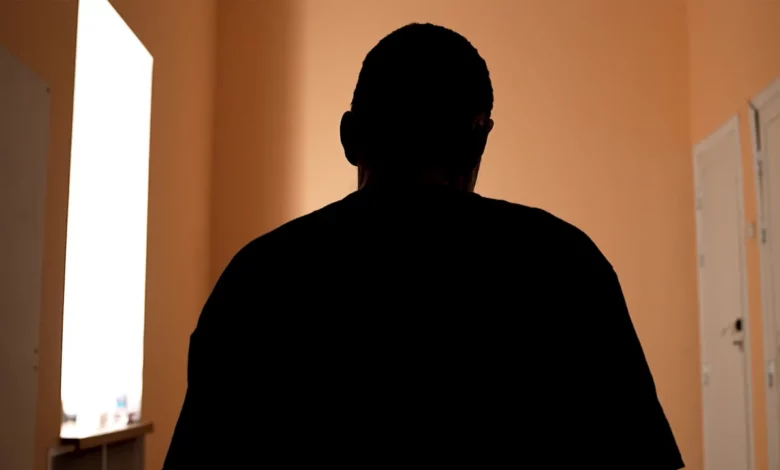
When it got quieter, he and fellow soldier Slava fell asleep. The sound of a roaring engine and shooting soon woke them up, and shelling eventually blew out the logs covering the foxhole they were hiding in.
“There was a crater right at the entrance. And then it went silent. It was dead silent. And my friend told me, let’s run,” recalls Slava, now in the custody of Ukrainian soldiers.
They ran, jumping over craters and bodies blown to pieces by incessant shelling, into another foxhole. They could hear a vehicle and the voice of Ukrainian soldiers moving above them, he says.
Anton had one rifle and one grenade. He says he heard a click, and two grenades were thrown in. The depth of the foxhole protected them from the blast.
“It was silent for a while, then (the Ukrainians) came back. I thought that was the end,” Anton says. He believed he would either be executed or brutally tortured.
“I switched the rifle to single shot mode, and I thought I would shoot myself. But I couldn’t,” he says, breaking into tears. He sobs silently and lights up a cigarette offered by a Ukrainian soldier.
He is one of eight Russian soldiers held by the Ukrainian Third Assault Brigade at a makeshift jail in eastern Ukraine. The men were kept in small cells without natural ventilation or sunlight, but with access to food, water and cigarettes.
CNN interviewed three of them before their transfer to Ukrainian intelligence, in rare access to POWs at this stage of detention. CNN is not using their real names and has concealed their identities to avoid possible negative consequences upon their return to Russia, and with regard to guidance published by the International Committee of the Red Cross on the reporting of POWs.
In the presence of two Ukrainian soldiers, the three men described low morale in their trenches, disarray and the apparent expendability of some Russian forces. They did not appear to be speaking under duress.
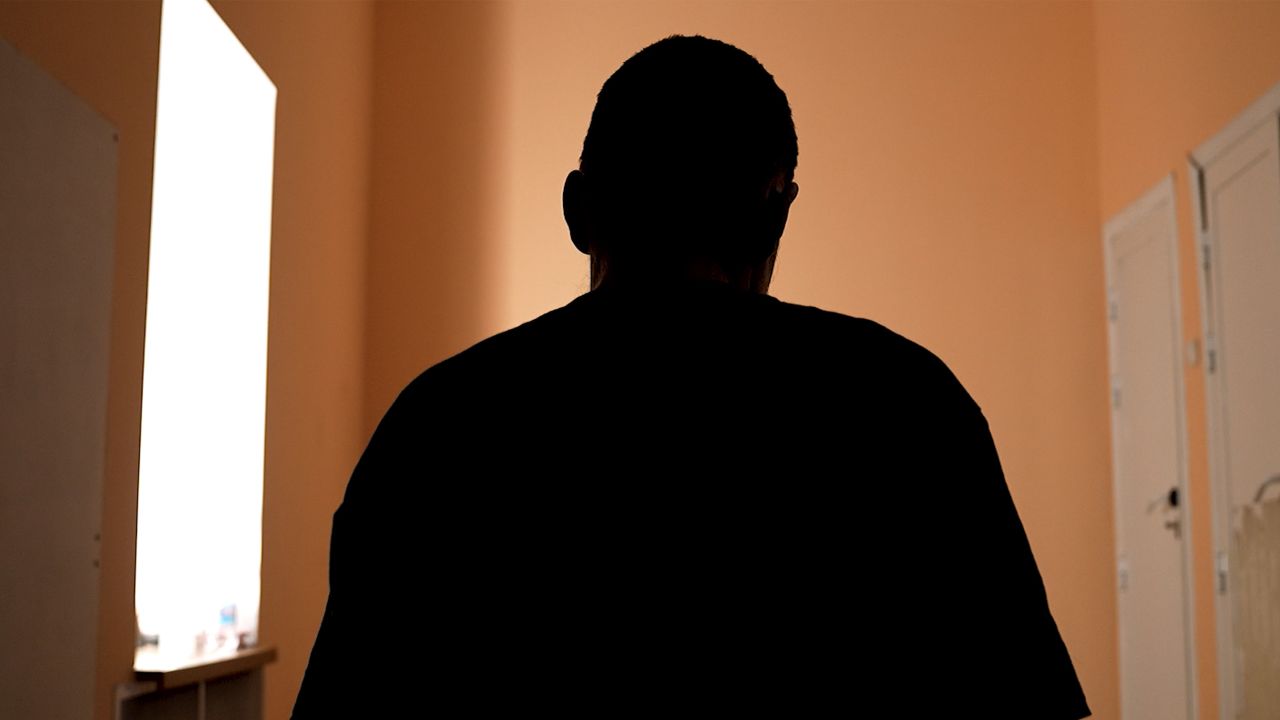
Hopes of exchange
The men’s captors want them exchanged for Ukrainian soldiers held by the Russians, but they don’t have high hopes. Most of the captured Russians are convicts, brought to the frontline under the helm of Storm Z, a Russian Ministry of Defense unit that gives amnesty to Russian convicts if they agree to a six-month deployment in Ukraine.
“For the Russian government, they are not worth much,” a Ukrainian soldier nicknamed “the Grandfather” tells us. He is in charge of the makeshift jail and says he has been receiving Russian convicts with similar stories for the past six months, unlike the ardent soldiers the Ukrainians used to capture in battle last year.
Hundreds of Ukrainians and Russian prisoners of war have been exchanged since the war began in early 2022. The most recent significant exchange, in April, mainly comprised Azovs, the soldiers that fought the last battle for the city of Mariupol, before Russia occupied it. The Azovs later formed the Third Assault Brigade now fighting in Bakhmut.
Anton says he was serving his third prison sentence in Russia, for drug possession, having been convicted for a similar crime and a robbery in the past. He says he was promised a clean record if he signed up to fight in Ukraine but claims he didn’t know he would be sent to the front line.
He and Slava had two weeks of basic training before their deployment.
“We had no morale,” fellow Russian soldier Slava tells CNN. “We expected to be holding the line of defense, as we were promised. We were told Wagner PMC (private military company) was the one involved in active hostilities. And that we would be the ones stationed on the liberated territories, as it was explained to us earlier.”
The Wagner mercenaries took control of Bakhmut in a 10-month battle that cost thousands of lives, according to accounts by both sides. Their leader, Yevgeny Prigozhin, withdrew them to the rear in May, weeks before his short-lived mutiny and march to Moscow on June 24. Since then, Ukrainian forces have been trying to take back the ruined town by encircling Russian troops from the north and south.
Slava was already in prison when Russia invaded Ukraine in February 2022, serving a decade-long sentence for drug dealing. Like Anton, he was promised his criminal record would be wiped clean if he joined Storm Z. Both say that their only source of information about the war before the deployment was Russian state media.
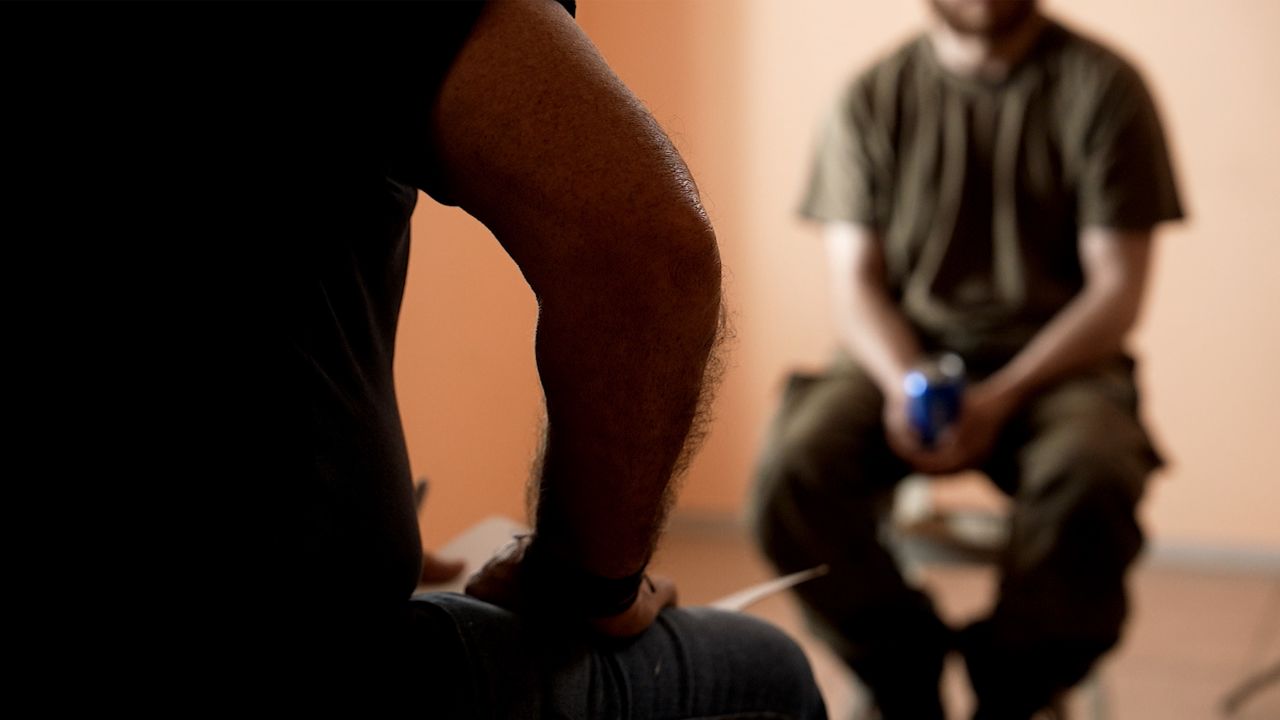
Foxhole capture
They were captured together hiding deep inside the foxhole. On the ground above them, Ukrainian soldiers were firing through lines of withered trees, throwing grenades into foxholes as they advanced forward. In a video shot and provided by the Third Assault Brigade, Ukrainian soldiers question the two Russians, about their rank, position and documents.
“I lost two close people today. My main sergeant and a squad commander. These were my mates, we went all the way together,” a Ukrainian is heard to say, addressing them off camera.
It’s tense in the darkness of the underground hole. The two Russian soldiers kneel in the dirt. Anton puts his hands over his lowered head and, behind him, Slava raises his hands up. The two repeatedly explain that they did not fire any shots to the gun-toting Ukrainian soldiers standing in front of them. Slava says: “They just brought us here and left.” Anton, adds: “You better kill us.”
In a tirade of expletives, the Ukrainian soldier responds, “”Who f**king told you we would f**king kill and cut you?”
“We don’t kill, we don’t cut off balls, don’t cut throats on camera like (you do) in your videos. Have you seen the videos?” he continues, referring to two videos circulating on social media purportedly showing Russian soldiers killing and maiming captured Ukrainians. CNN cannot independently verify these two videos.
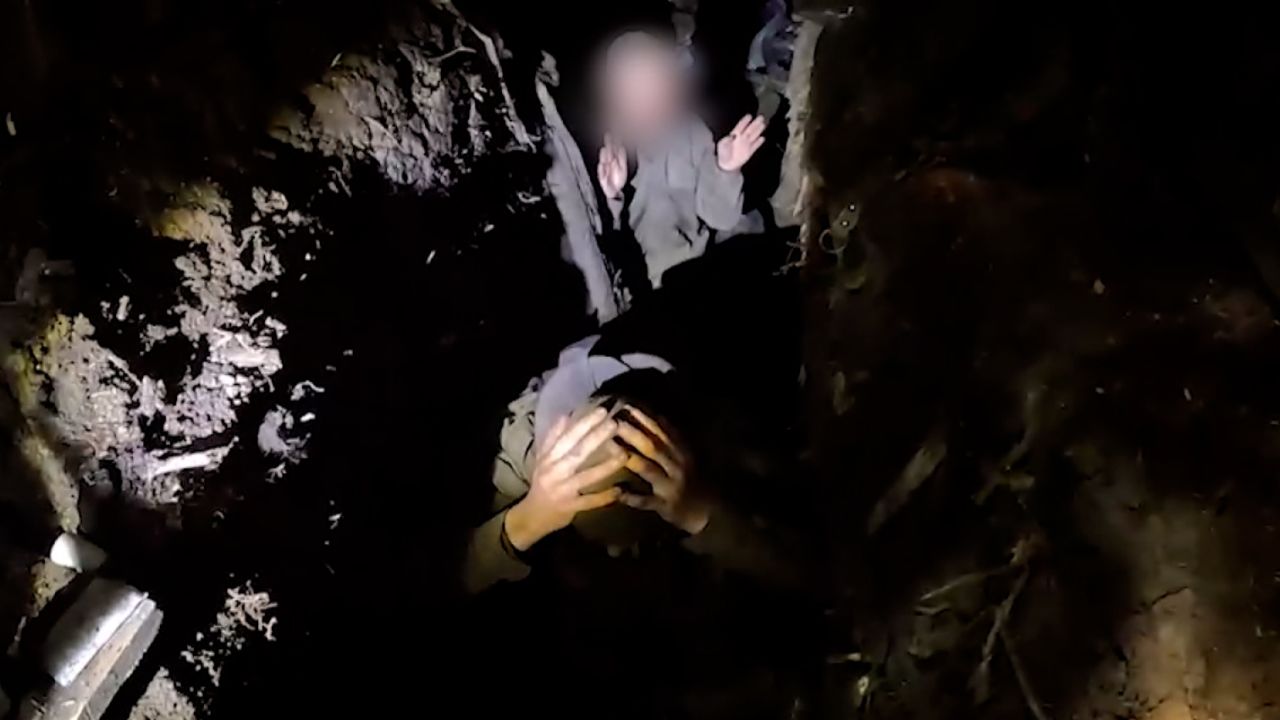
Fighting over the trenches, as Ukrainians try to break through heavily fortified Russian defense lines along a 1,000-km (600-mile) frontline, has left countless casualties. Every kilometer costs lives, Ukrainian President Volodymyr Zelensky recently said.
Soldiers fire at close range walking through the forked narrow trenches, shooting at first sight, according to several videos posted by the Ukrainian Armed Forces over the past weeks. Bodies litter the battlefield.
Parallel reality
Russian soldier Sergei, another of the captives, tells CNN he was shouting “surrender” as two grenades landed nearby, killing the soldiers next to him in the trench. His commander had already fled.
“I hid in the trenches. Those who wanted to run from one position to another were simply shot down by machine guns and tanks,” he recalls. When he saw the Ukrainian soldiers, he crawled away in fear and huddled with two soldiers. One of them was calling for Russian artillery cover on a walkie-talkie before getting killed by flying shrapnel.
“Our artillery, as usual, did not work. Then ours tried Grad (rocket launchers) but they kept missing. Then I heard (the Ukrainians) approaching us; I started shouting ‘We Surrender,’ then they threw a grenade at us,” he says.
“I felt it cut my hand. They asked me who I am, and I said that I am Russian and that I surrender. I started to get up, and a second grenade arrived. I managed to crawl halfway out of the trench in a second,” he tells CNN. The Russian soldier behind him was killed by the grenade and Sergei felt a cut through his leg.
A Ukrainian soldier later explains that it’s difficult to hear what the Russian soldiers are saying during the gunfights.
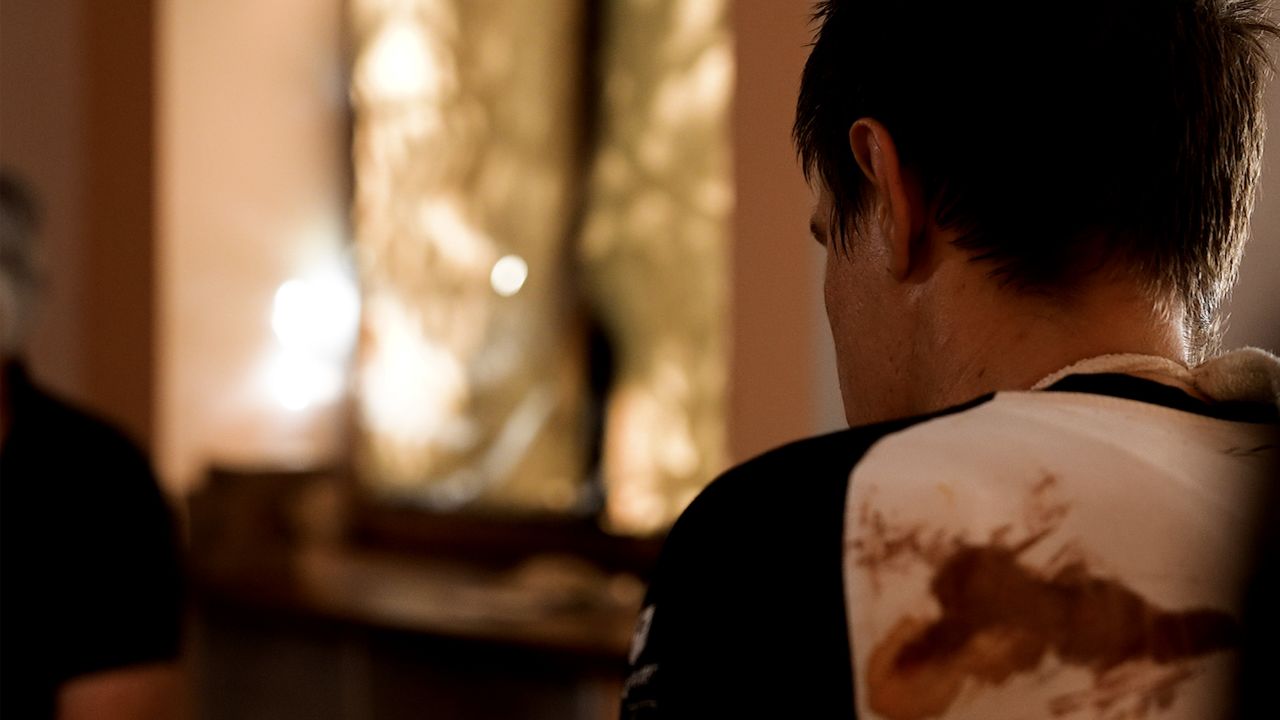
“I was lucky, twice, that I (wasn’t killed by the grenade) and that I surrendered as a prisoner,” Sergei says. Ukrainian soldiers gave him first aid and carried him to a field hospital. Sergei’s hand and leg were bandaged when he was brought out of his cell, hopping on one leg.
Unlike the rest, he is a contract soldier, not a convict. He says he served the time he signed up for last year in Kherson. After he got back home, he says the military prosecutor threatened him with prison for desertion if he did not go back to the battlefield.
The young father says his previous military experience did not prepare him for what both sides call the “meat grinder” in Bakhmut.
“It was very different from what I saw on TV. Parallel reality. I felt fear, pain and disappointment in my commanders,” he says.
‘Nonsensical orders’
The other two POWs CNN interviewed recounted similar stories. Their only access to food and water was a 5-kilometer (3-mile) walk through minefields. Anton says their immediate commander was also a convict. Their commanders got high on the stock of painkillers they had, Slava recalls.
Under the influence, these commanders sent soldiers out under mortar fire, “giving nonsensical orders,” Slava says.
Their accounts cannot be independently verified, but they are consistent with videos posted by Russian conscripted convicts who say they were deployed to the frontline with little support. Russian artillery, jets and long-range precision missiles, along with their heavily fortified trenches, have slowed the Ukrainian counteroffensive that kicked off last month.
Sergei believes his injuries will keep him away from future deployments and out of prison once he is exchanged with Ukrainian prisoners of war. Slava and Anton are not so sure. Russia toughened up its penalties for voluntary surrender last September, imposing up to 10 years in prison.
Asked about potential retribution when he is back at home, Anton says: “I don’t know. It’s hard to answer this question, but knowing our country’s history, such things happened before.”
He wants to go back home, put his life in order and reconnect with his estranged child. He might end up back in prison instead.




